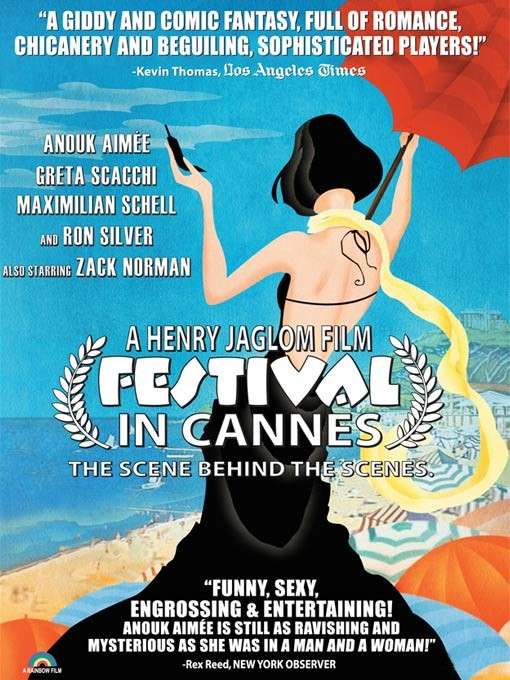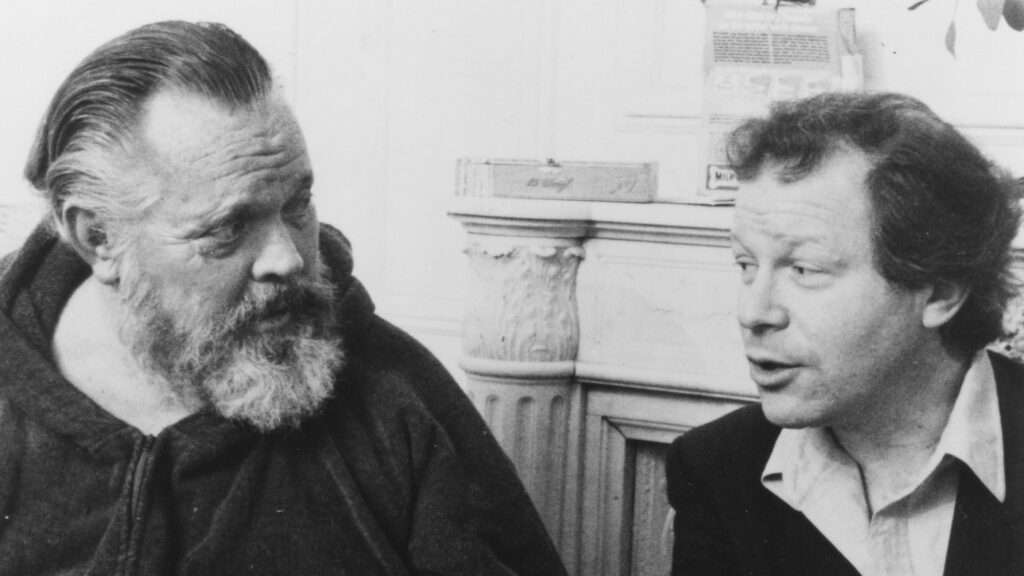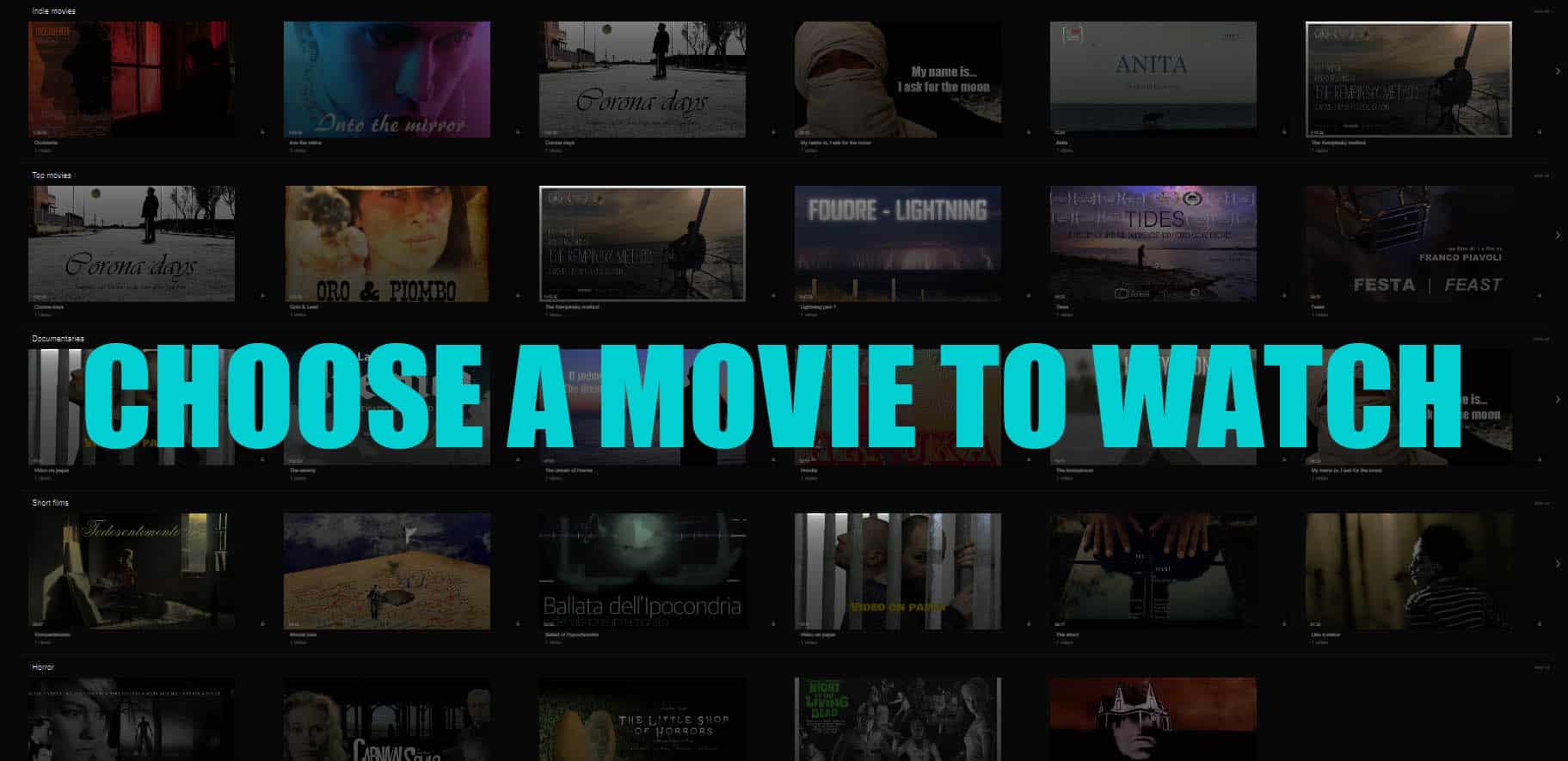Festival in Cannes: the Plot
Festival in Cannes, 1999. Alice, an actress, wants to make an independent film as a director based on a screenplay written by two of her friends which includes the interpretation of Gena Rowlands, wife and actress of the godfather of American independent cinema John Cassavetes. But Kaz, a guy who talks a lot and claims to be a producer (but seems unreliable), makes her change her mind and promises her $ 3 million if she gives Millie, an old French movie star, a role. The famous actress likes the script very much and promises to make the film. But, Rick, a great producer, needs Millie for the part of the mother of the protagonist in a film to be shot during the fall, otherwise the main star of the film, Tom Hanks, will not accept the role. Is Kaz a real producer or is he a scoundrel? Millie asks Victor, her ex, for advice on which movie to shoot. Rick has to find the money for the production, a naive actress named Blue is a big hit at the event, Kaz falls in love with Victor’s woman, and Rick’s secretary meets Blue. The wheel of fate is spinning: relationships, loves, film production and business? How will it end?
The film explores what happens behind the scenes of the biggest festival in the world as a real backstage, a fake documentary, and tells with the tone of comedy what are the compromises sometimes necessary to get to the realization of a film or to continue to find a role in a film, between lies, deceptions, superficiality and inner insecurities.
Festival in Cannes: the Style of the Movie

Shot as a backstage during a real edition of the Cannes Film Festival, the film is halfway between documentary and sentimental comedy, with some black undertones. The actors act with a spontaneous and improvisational style that makes the characters fresh, real and believable. The soundtrack is built with old romantic French songs. The characters are made interesting by their contradictions and their constant changes: from romanticism to cynicism, from passion to sadness, the film shows the people of the cinema having to deal with a vacant and superficial world that they cannot get sucked into.
Watch movie
Festival in Cannes: Changing Souls in Show Business

The director sensitively recounts the traps of the human soul of actors, actresses, directors and producers, imprisoned in ways of thinking that limit their freedom and their feelings. The film is also an interesting journey into the background of the film industry, a gallery of small events, insignificant details, inner changes and new existential decisions through which a film project is often born.
The Cannes Film Festival, like all large events that have a glamorous style, has a bizarre aspect. On the waterfront, around the red carpets, strange characters wander around in the hotel suites. It’s not uncommon to meet a producer in a suite of a grand hotel for billionaires looking for big stars to round out the cast or production budget and find out after a while that all that glitz, that or luxury feel doesn’t match at all. to the reality of its finances.
Maybe behind him that is a Hollywood studio that pays all the expenses but is ready to fire him at any moment If he can’t complete the cast of the new film. Just like the character of Rick in Festival in Cannes. The director manages to describe the cinema environment with great precision: people who have known each other for a lifetime, who may have had bonds of friendship and love, but who are totally dominated by the logic of film production.
Film Festivals in Cannes

Show business directs their lives, the project of a new film is more powerful than any personal relationship, and shapes everything and every life choice. Cinema, at times, for cinema people, can be a real existential curse. The idea of a film, a new script, a new project, immediately becomes something bigger, more exciting and overwhelming than the tranquility and balance of private life.
But in turn the artistic project, the idea and the enthusiasm have to struggle with the purely industrial and business dynamics that have dominated cinema since the birth of Hollywood and show business. Precisely at this point the problems of the characters arrive: because if it is true that a great collective artistic project such as a film can really be more important, even on an existential level, than private life, it is absolutely not true that business dynamics can rise to above everything and to check every decision.
Art or industry?

It is precisely the inner conflict of Millie, the French actress played by Anouk Aimée, forgotten by the world of cinema, in search of roles that can relaunch her career. Millie can’t decide whether to make a small independent film that she loves the story of or recycle herself with a small part in a big Hollywood production that can give her a lot more money and exposure. These are choices that actors, directors and producers have to make continuously and that represent the basic idea of the film.
On the one hand, freedom, independence, art and low profits. On the other hand, great production, control, being the cog in a system, great earnings and popularity. The eternal conflict of independent cinema against industrial cinema reflects the deep conflicts of life in general, and its different scales of values. At the Cannes Film Festival the value of the simplicity of things, of the truest feelings seems to go along well with independent cinema, even if in reality everything seems to take place within the great embrace of show business without which nothing could have happened.
Exemplary is the scene in which Rick, perhaps the most interesting character in the film, tries to persuade Alice for the last time to give up Millie for his cast, and in this attempt, his feelings are also revealed. It might seem like a sordid falsehood, a hypocritical opportunism. Instead behind the images we read something authentic in the soul of the characters: business, opportunities, feelings and love end up mixing in a single flow that is not fiction.
Everyone has to struggle with their egotism and ambition, the psychology of the characters are complex and their self-destructive drives often turn into pure comedy. Zack Norman offers his best performance ever, Anouk Aimee and Maximilian Schell fully embody mystery and romance, and there are some little-known faces, like Alex Craig Mann and the two writers, who work very well in the cast.
Watch movie
Director of Festival in Cannes

Henry Jaglom studied as an actor with Lee Strasberg at New York’s Actors Studio, and has worked extensively in off-Broadway theaters. In the late 1960s he moved to Hollywood and worked as an actor with Columbia Pictures on several television series and shows such as Gidget (1965) and The Flying Nun (1967). He also stars in several films including Richard Rush’s Psych-out: The Veil Over the Belly (1968), Jack Nicholson’s Yellow (1971), Dennis Hopper’s Hollywood Escape (1971) and The Other Face of the Wind (2018) by Orson Welles.
He collaborated in 1969 on the editing of Denis Hopper’s Easy Rider, and made his debut as a screenwriter and director in 1971 with A Quiet Place, starring Tuesday Weld, Jack Nicholson and Orson Welles. His next film, Tracks – Long Tracks of Madness (1976), stars Hopper, and was one of the first films to tell the psychological distress of veterans of the Vietnam War. His third film, the first to be a commercial success, is Sitting Ducks – Money, Sex & Vitamins (1980), a comedy film starring Zack Norman. He later directs Can She Bake at Cherry Pie? (1983), a film with a very original and innovative style that comes from acting improvisation, a fluid flow like life but contained within a great story.
Jaglom has starred in four of his films: Always (1985), But Not Forever (1985); Someone to Love (1987), starring Orson Welles in his farewell film performance; The first images of the new year (1989) and Venice / Venice (1992), with the French star Nelly Alard.
In 1990, Jaglom directed Eating (1990), about a group of women with eating disorders. Babyfever, from 1994, tells about women’s problems and the ticking of their biological clocks. Last Summer in the Hamptons (1995) was a Chekhovian look at the life of a family of theatrical actors. Déjà Vu (1997) tells the desire of people trying to find their soul mate, with Vanessa Redgrave. Festival in Cannes (2001) explores the lives and relationships of those involved in the world of cinema and was filmed entirely at the Cannes International Film Festival. Going Shopping (2005) explores the world of women again.
Hollywood Dreams (2006) instead tells a young woman’s obsession with fame in the film industry, with actress Tanna Frederick, who also stars in her next film, Irene in Time (2009), a look at the complex relationships between fathers and daughters. Queen of the Lot, Jaglom’s third film starring Tanna Frederick, hits US theaters in November 2010.






